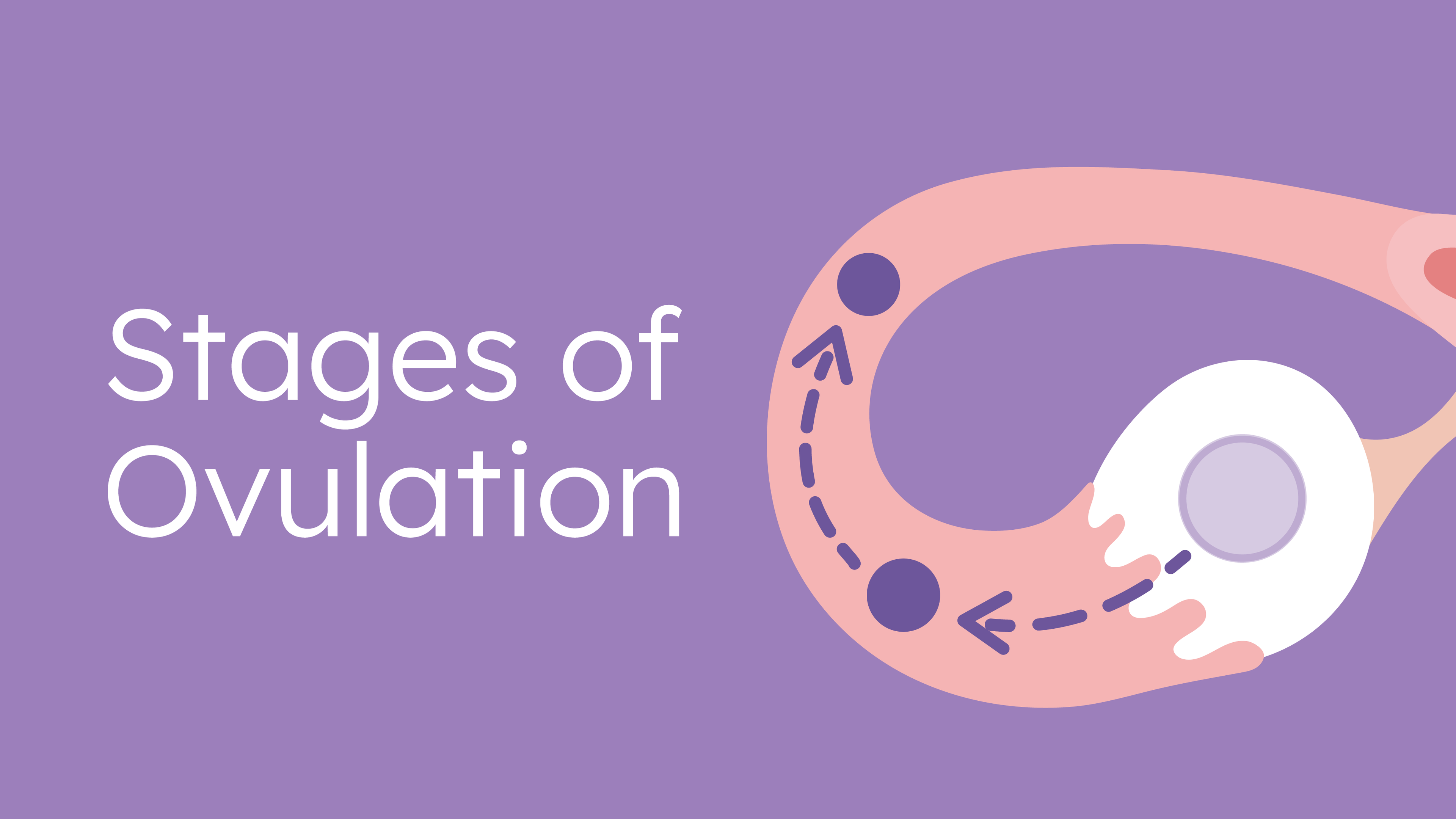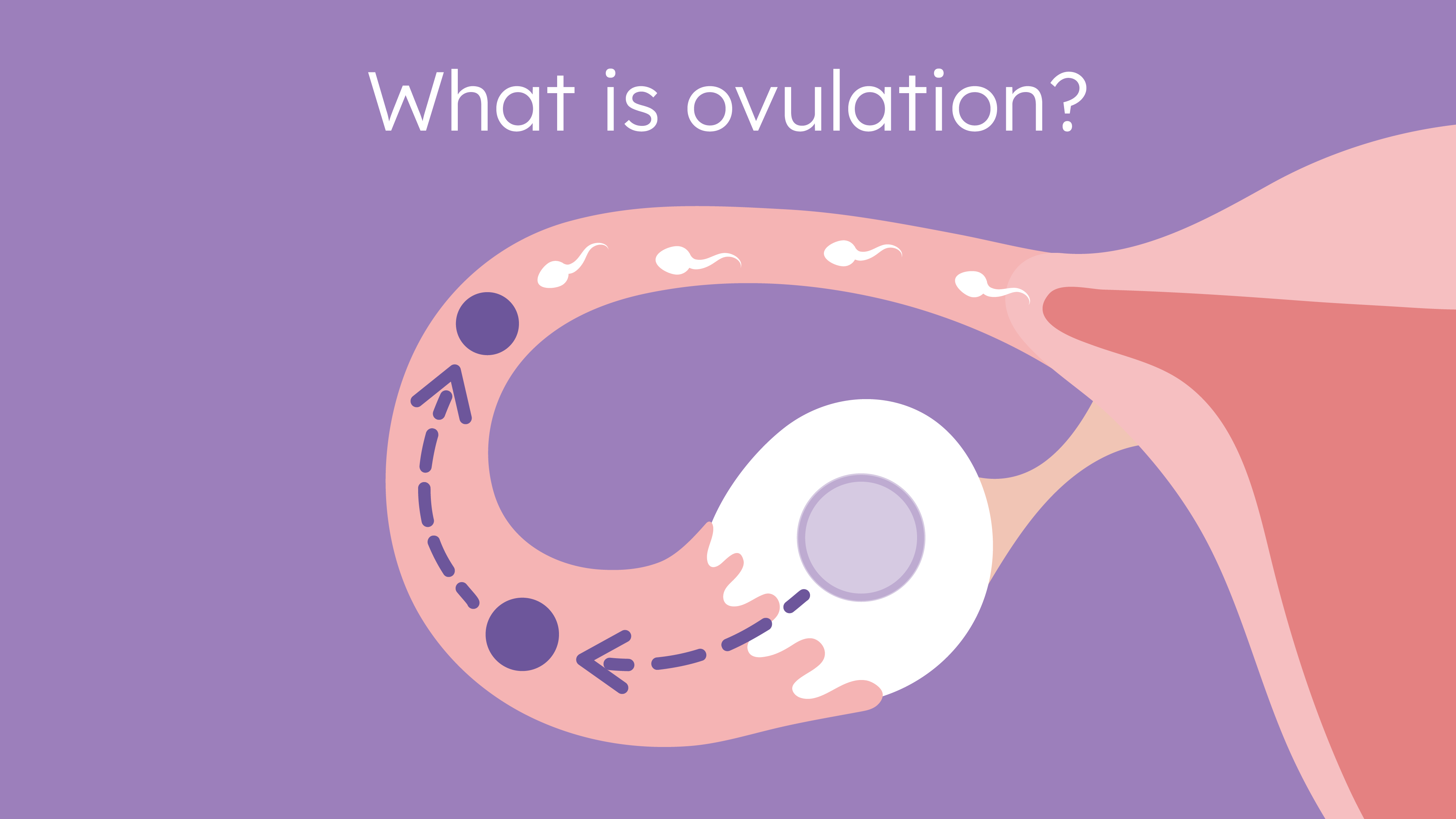
One of the most important things to be aware of if you’re trying to get pregnant is ovulation, or the time in your cycle when you release an egg (remember: egg + sperm = baby, hopefully)! But what is ovulation, and what does it mean to, “be aware of it?” What can you do to understand your fertility when you’re trying to conceive?
We’ve got answers to all these and more, so read on!
What is ovulation?
In short, ovulation is when your ovaries release an egg, which can then be fertilized by a sperm to conceive a baby. Ovulation only happens once every menstrual cycle (approximately once a month, if your cycles are regular), and usually one egg is released. Sometimes two eggs (or more) can be released very close to each other, resulting in fraternal twins, but this is still one “ovulatory event.”
Ovulation doesn’t just magically happen though, and it also isn’t just a yes-or-no sort of thing. There are many stages leading up to and away from ovulation that will help you understand your fertility. It’s also possible to ovulate successfully or not so successfully, which impacts your possibility of getting pregnant and staying pregnant.
Different Stages of Ovulation

What are the stages of ovulation, and how do you know that it’s coming? Really, the events leading to and from ovulation comprise the entire menstrual cycle, so let’s go over the stuff you probably didn’t learn in your high school sex ed class…
Stage 1: Menstrual Phase
When you’re tracking your cycle, “day 1” is the first day of your period, or menstruation. During this time, your hormonal activity is relatively low, and the uterine lining is shedding from your last cycle.
This is typically the time in your cycle opposite ovulation, but your body is already beginning to prepare for the next ovulation! While it isn’t likely to get pregnant on your period, it is technically possible if your period and your follicular phase overlap. Sperm can survive 3-5 days in the female reproductive tract.
Stage 2: Follicular Phase
Soon after menstruation, though, your hormones will begin to rise and set off the chain reaction of events leading to ovulation. First, follicle stimulating hormone, or FSH, tells your ovaries that it’s time to get eggs ready to go. This leads to a rise in estrogen, and begins some of the symptoms that help you predict ovulation.
The first sign that the fertile window (or the time when pregnancy is possible) is starting, is this estrogen rise, which can be directly detected using estrogen (E1G) tracking in Proov Complete to help you find the entire fertile window. This estrogen rise also leads to fertile ovulation discharge called cervical mucus.
Stage 3: Ovulatory Phase
When estrogen rises and fertile cervical mucus begins, you’re entering the ovulatory phase, and ovulation is imminent! This is probably the most important of the ovulation stages if you’re trying to conceive.
Luteinizing hormone (LH) is sent from the brain and is the final step to trigger the ovaries to release an egg. 24-36 hours after the LH surge, the egg will be released, and then live for another 12-24 hours after that.
You can easily detect the LH surge with urinary hormone tracking, either with Proov Predict or Proov Complete. To sum it all up, once you detect an LH surge, that’s your best time to try! From then, you’ll have 1-2 days before the egg is gone and you’ll have to wait until the next cycle to try again to conceive.
Stage 4: Luteal Phase
After ovulation, it isn’t all over though! There’s still an entire second half of the cycle, called the luteal phase. When the egg is released from the ovarian follicle, the leftover follicle becomes the corpus luteum, a new organ that makes progesterone. Progesterone is a critical hormone that maintains the uterine lining, making it “sticky” and allowing a newly fertilized egg to implant.
There’s still one more crucial part of the ovulation cycle, and that’s the implantation window. This is 7-10 days after ovulation, and during this time the new embryo could implant in the uterine wall if progesterone is elevated and sustained. If progesterone is too low, implantation could fail and lead to an early miscarriage.
Fortunately, you can track progesterone levels during implantation by testing PdG, the urinary metabolite of progesterone. PdG testing with Proov Confirm, the only FDA-cleared at-home test for successful ovulation, will give you an Ovulation Score and help you understand how successful ovulation was that cycle. The higher your Ovulation Score, the more successful your ovulation was – and successful ovulation allows for a higher possible chance at pregnancy!
At the end of the luteal phase, you’ll either be pregnant, or menstruation will start and the entire cycle will begin again!
How to Track and Detect Ovulation

Ovulation is accompanied by many symptoms, such as cervical mucus changes, a rise in body temperature, and other less consistent things like breast tenderness and high libido. Fortunately, it’s easy to reliably track ovulation (more accurately than a period tracking app, too)! Some of our favorite ways are:
- Tracking all four main menstrual cycle hormones in one convenient kit with Proov Complete. Proov Complete can find the entire fertile window, test your ovarian reserve, and test for successful ovulation!
- Predicting ovulation with Proov Predict LH testing, to find your two most fertile days, and then confirming successful ovulation with Proov Confirm PdG tests
- Using cervical mucus/different ovulation discharge stages to find the fertile window
Whatever your preferred ovulation detection method, knowing when you’re about to ovulate will help you time intercourse appropriately, and prepare for the two-week-wait. You’ll also know when it’s time to test for pregnancy, and go in to that first doctor’s appointment prepared with your ovulation date!














